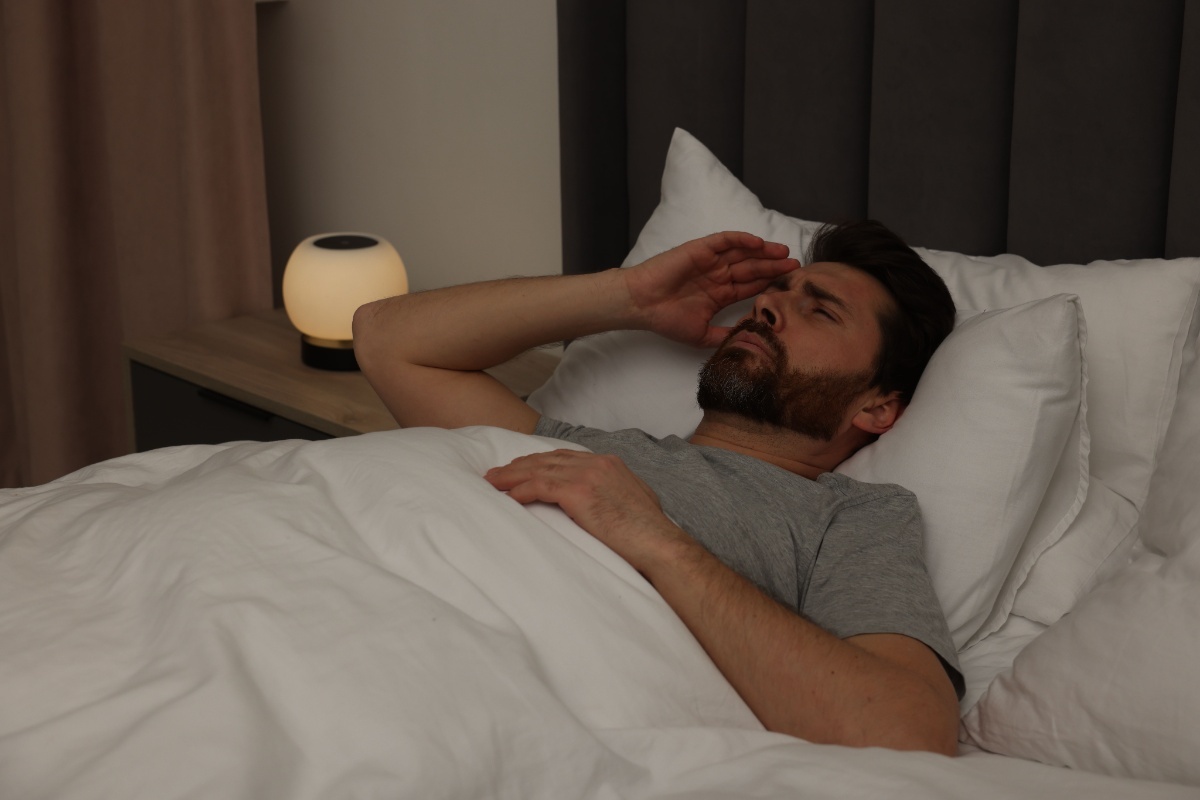Understanding Polysomnography Sleep Study
- A polysomnography sleep study is a comprehensive diagnostic tool used to assess sleep disorders.
- It involves overnight monitoring of brain activity, oxygen levels, heart rate, breathing, and body movements.
- This sleep study is especially valuable for identifying conditions such as sleep apnea, restless leg syndrome, and narcolepsy.
- As a result, it helps doctors create an accurate treatment plan tailored to individual sleep issues.
Why is Polysomnography Essential?
- Poor sleep not only affects energy levels but also contributes to serious health conditions like hypertension and heart disease.
- For example, undiagnosed sleep apnea may lead to chronic fatigue, mood swings, and impaired memory.
- Therefore, timely diagnosis through a sleep study can drastically improve sleep quality and overall health.
Types of Sleep Disorders Diagnosed by Polysomnography
- Obstructive Sleep Apnea (OSA)
- Central Sleep Apnea
- Periodic Limb Movement Disorder
- REM Sleep Behavior Disorder
- Insomnia with underlying neurological causes
- In addition, it can detect abnormal sleep cycles and sleepwalking behaviors.
What Happens During the Polysomnography Test?
- The test is performed overnight at a sleep center under medical supervision.
- You’ll be connected to sensors that track various bodily functions throughout the night.
- Although it may seem uncomfortable initially, most patients adjust quickly.
- Moreover, a technician is available to assist in case you feel uneasy during the test.
Preparing for Your Sleep Study in Delhi
- Avoid caffeine or alcohol before the study as they may disrupt sleep patterns.
- Take a shower and avoid applying lotions or oils on your skin before arriving.
- Because electrodes will be attached to your body, clean, dry skin is essential.
- Bring comfortable sleepwear and personal items to help ease the experience.
Benefits of Getting Polysomnography Done at JCS Lung & Sleep Centre
- Advanced equipment and experienced pulmonologists ensure accurate diagnosis.
- Our Delhi-based facility offers a comfortable, quiet environment for testing.
- Additionally, the reports are interpreted by experts in sleep medicine.
- Personalized follow-up care plans are provided based on the test results.

Difference Between Home Sleep Test and Polysomnography
- Home sleep tests are less comprehensive and suitable only for suspected sleep apnea.
- In contrast, polysomnography captures more parameters and provides a complete view of your sleep architecture.
- Hence, it is preferred for more complex or unexplained sleep disorders.
How Polysomnography Leads to Better Sleep Health
- Identifying root causes helps eliminate guesswork in treatment planning.
- Consequently, patients experience faster recovery and long-term relief.
- Improved sleep quality enhances mood, mental clarity, and energy levels.
Common Myths About Sleep Studies
- "You won’t be able to sleep in a lab": Most people sleep better than expected.
- "It’s painful": The test is completely non-invasive and painless.
- "It’s only for older adults": Sleep disorders can affect all age groups.
What Happens After the Test?
- The data collected is analyzed by a sleep specialist.
- Based on your results, a customized treatment plan is developed.
- In addition, if required, further consultations and treatments such as CPAP therapy may be suggested.
How to Book Your Sleep Study in Delhi
- Visit our website at jcslungandsleepcentre.com to schedule an appointment.
- Alternatively, you can call or email us for more information.
- Our team ensures quick appointments and timely report delivery.
Why Choose JCS Lung & Sleep Centre for Polysomnography?
- Certified sleep medicine professionals and pulmonologists
- State-of-the-art facilities with advanced monitoring systems
- Patient-friendly approach with complete privacy
- Moreover, we offer guidance even after the study is complete
FAQs - Polysomnography Sleep Study
Polysomnography is used to diagnose sleep disorders like sleep apnea, insomnia, and narcolepsy by monitoring brain and body functions during sleep.
A typical overnight polysomnography test lasts between 6 to 8 hours.
No, it is a non-invasive procedure that involves only attaching external sensors to your body.
Avoid heavy meals, caffeine, and alcohol at least 6 hours before your scheduled study.
Results are usually available within a few days after a sleep specialist analyzes the data.
While home tests are convenient, they are not as detailed as in-lab polysomnography.

